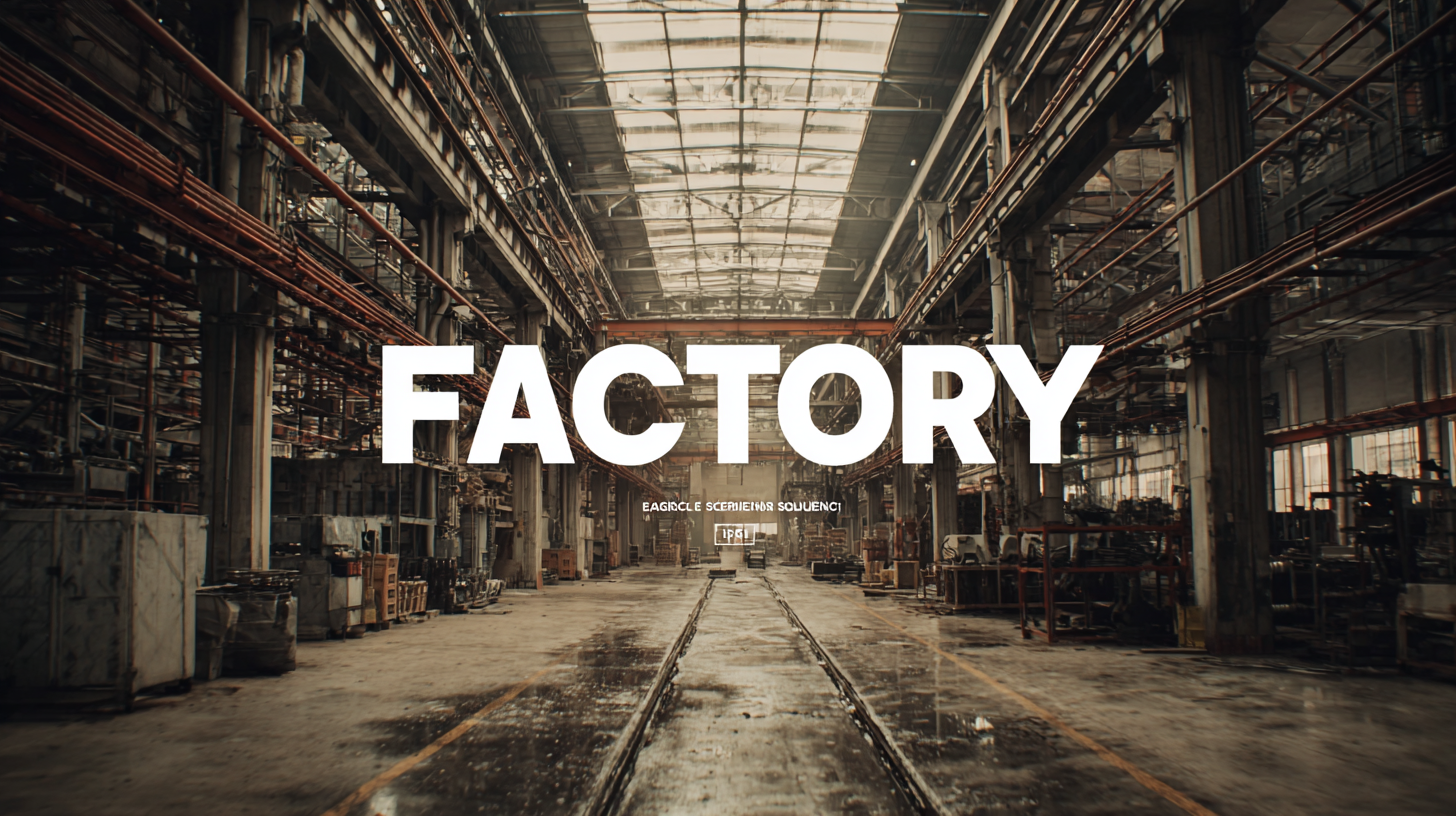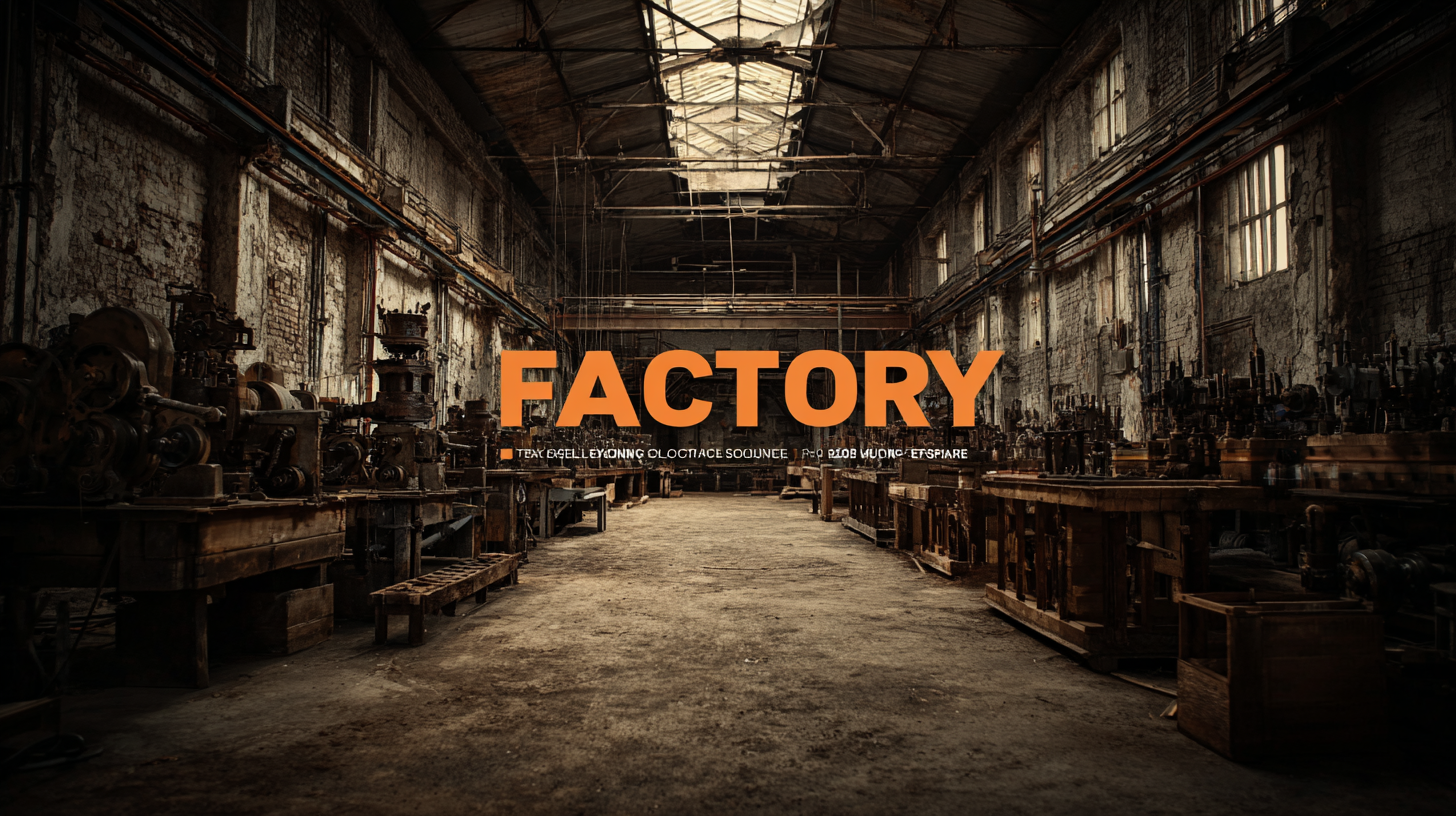
Discover the Top Examples of Excellence from the Best Factory for Global Sourcing
In the ever-evolving landscape of global sourcing, understanding the unique characteristics and applications of different product types is crucial for manufacturers and retailers alike. According to a recent report by McKinsey & Company, the global sourcing market is projected to reach over $6 trillion by 2025, underscoring the importance of factories that excel in diverse product offerings.

Factories that prioritize excellence can significantly enhance their competitive advantage by optimizing production processes and delivering high-quality products tailored to various consumer needs. From electronics to textiles, each product category demands distinct manufacturing capabilities and quality standards, requiring factories to adapt and innovate consistently. This blog will explore standout examples of factories that exemplify excellence, highlighting their strategies and best practices in catering to the diverse requirements of the global market.
Global Sourcing: Understanding the Role of Excellence in Manufacturing Facilities
In the realm of global sourcing, the pursuit of excellence in manufacturing facilities has become paramount. Companies are increasingly recognizing that the quality of their products is directly linked to the capabilities and practices of their chosen factories. Excellent manufacturing facilities not only adhere to stringent quality standards but also embrace innovative technologies and sustainable practices. This commitment to excellence enhances not just production efficiency but also the overall reputation of brands in the marketplace.

Understanding the role of excellence in manufacturing goes beyond surface-level inspection of products. It involves a comprehensive approach where facilities invest in workforce training, implement robust quality control measures, and foster a culture of continuous improvement. By prioritizing these elements, manufacturers can ensure they meet global demands while also fulfilling corporate social responsibilities. As businesses explore partnerships with top factories for sourcing, they validate the importance of selecting facilities that embody these principles of excellence, ultimately guiding them toward long-term success and competitiveness in the global market.
Innovative Technologies Shaping Factory Performance in 2025
As we approach 2025, innovative technologies are set to redefine factory performance, particularly for global sourcing. The integration of artificial intelligence and machine learning will streamline operations, allowing factories to predict maintenance needs, optimize supply chains, and enhance productivity. By analyzing vast amounts of data, these technologies enable factories to make informed decisions that increase efficiency and reduce downtime. The result is a more agile manufacturing process that can quickly adapt to changing market demands.
Additionally, the rise of automation and robotics cannot be underestimated. These advancements not only improve precision and speed in production but also ensure a safer working environment by taking over hazardous tasks. Collaborative robots, or cobots, are designed to work alongside human operators, further enhancing productivity while allowing for a more flexible workforce. As factories leverage these cutting-edge tools, they set a new standard for excellence in global sourcing, enhancing their competitiveness on the world stage. The future of manufacturing lies in these transformative technologies, paving the way for smarter, more efficient factories.
Case Studies: Leading Factories Redefining Global Sourcing Standards
In the realm of global sourcing, certain factories have set the gold standard through innovative practices and unwavering commitment to excellence. One notable example is a leading electronics manufacturer that has streamlined its supply chain by integrating advanced automation and real-time data analytics. This approach has not only reduced production times but also enhanced quality control, allowing them to meet the ever-evolving demands of international markets. The result is a more agile production process that ensures products reach consumers faster and with greater reliability.
Another standout case is a textile factory recognized for its sustainable sourcing practices. By prioritizing eco-friendly materials and ethical labor practices, this facility has redefined industry norms, showcasing that profitability and responsibility can coexist. Through collaboration with local farmers and suppliers, they have created a transparent supply chain that reduces waste and promotes community welfare. These examples illustrate how foresight and innovation in manufacturing can elevate global sourcing standards while fostering a commitment to sustainable development.
Sustainability in Manufacturing: Best Practices from Top Factories
Sustainability in manufacturing is becoming increasingly crucial as industries strive to reduce their environmental impact. Leading factories have adopted best practices that not only promote efficiency but also contribute to the well-being of the planet. One major trend is the integration of renewable energy sources, such as solar and wind power. By harnessing these energy forms, factories can significantly decrease their reliance on fossil fuels, thus minimizing their carbon footprint.
Tip: Consider investing in energy-efficient machinery. Upgrading to the latest technology not only conserves energy but can also lead to long-term cost savings. Additionally, implementing a comprehensive waste management system is paramount. Factories that prioritize recycling and waste reduction initiatives are setting a benchmark for others to follow, creating a circular economy that benefits both the business and the environment.
Tip: Collaboration with suppliers who share similar sustainability goals can amplify the effects of eco-friendly practices. Maintaining transparency about sourcing materials and production processes fosters trust and encourages more responsible practices industry-wide. By focusing on sustainable methodologies, these top factories not only lead by example but also inspire others to follow suit on the path towards a more sustainable future.
The Future of Work: How Automation and AI are Transforming Global Sourcing
 The rapid evolution of technology is reshaping the landscape of global sourcing, with automation and artificial intelligence at the forefront of this transformation. Companies are increasingly adopting advanced technologies to streamline their operations, reduce costs, and enhance efficiency. By integrating automated systems, businesses can minimize human error and optimize supply chain management, ensuring that they are able to meet consumer demand more effectively.
The rapid evolution of technology is reshaping the landscape of global sourcing, with automation and artificial intelligence at the forefront of this transformation. Companies are increasingly adopting advanced technologies to streamline their operations, reduce costs, and enhance efficiency. By integrating automated systems, businesses can minimize human error and optimize supply chain management, ensuring that they are able to meet consumer demand more effectively.
Artificial intelligence further elevates this transformation by enabling data-driven decision-making. Machine learning algorithms can analyze vast amounts of data to forecast trends, identify potential disruptions, and even suggest optimal sourcing strategies. As a result, companies that leverage AI can not only respond swiftly to market changes but also gain a competitive advantage in the global sourcing arena. This shift towards smarter sourcing solutions ultimately leads to a more resilient and agile manufacturing process, poised to meet the challenges of the future.